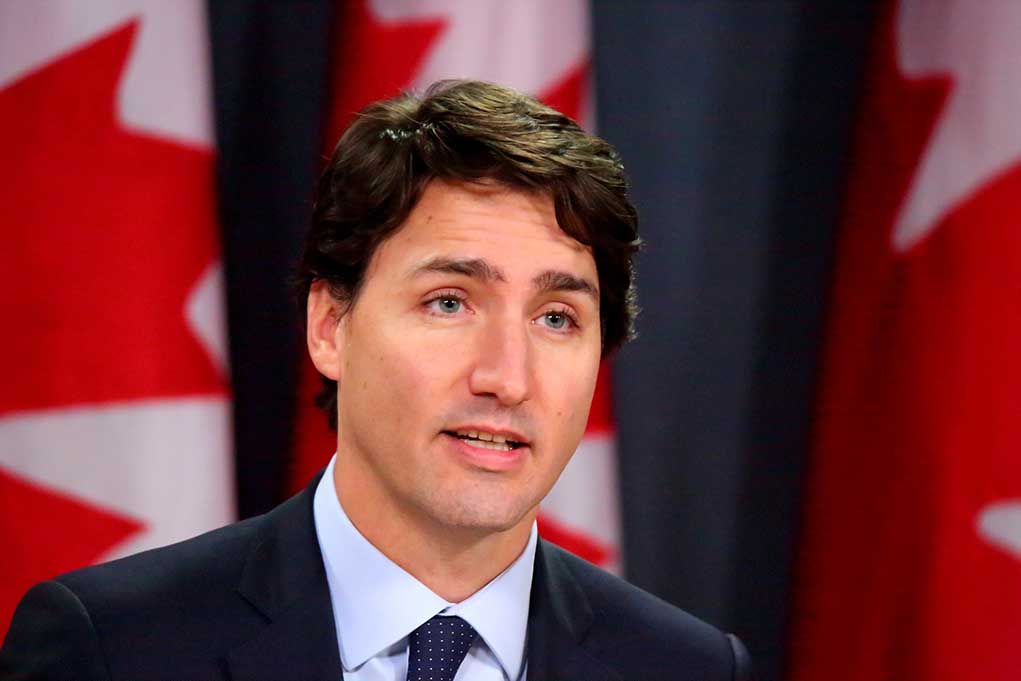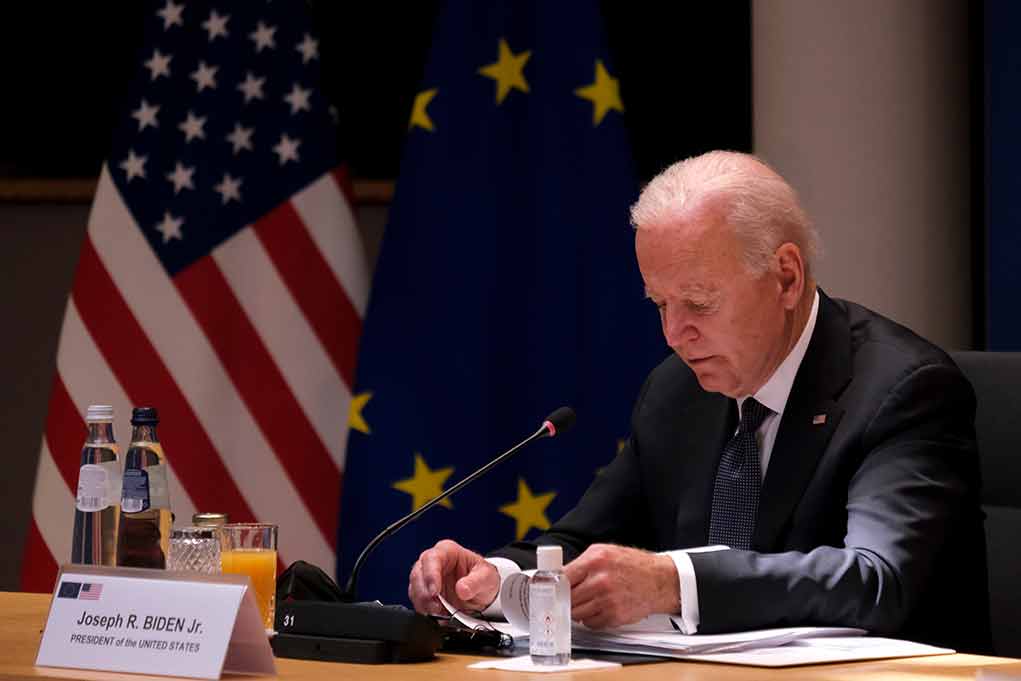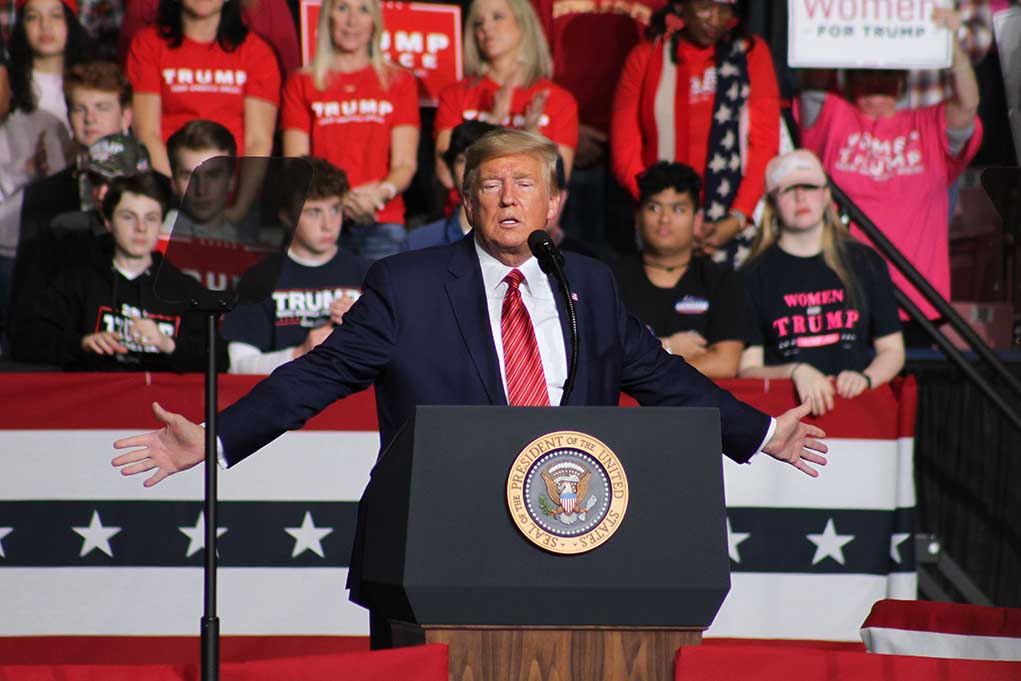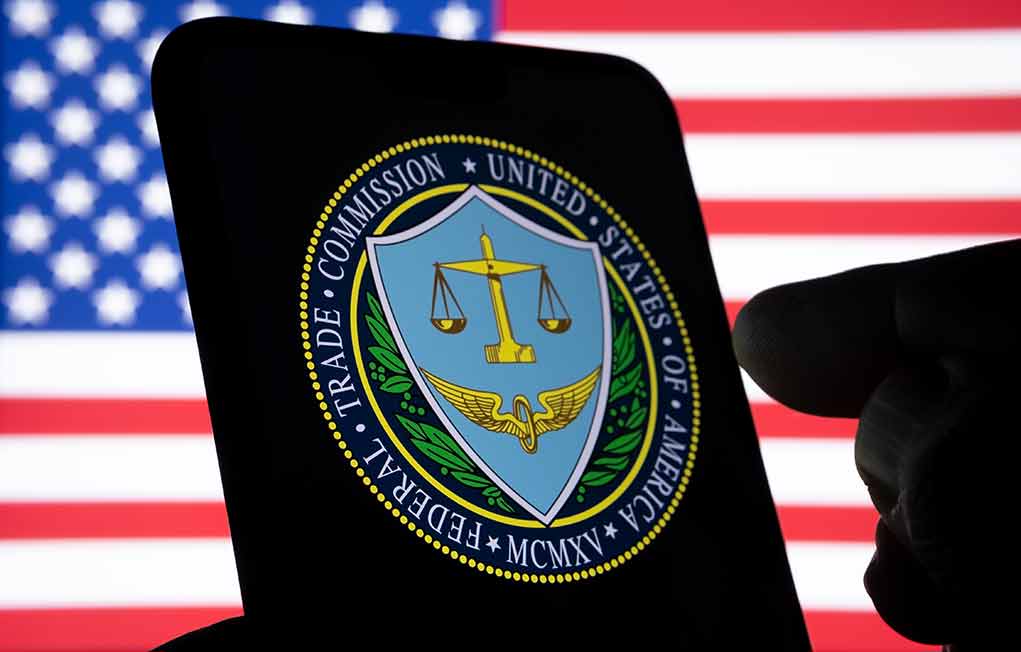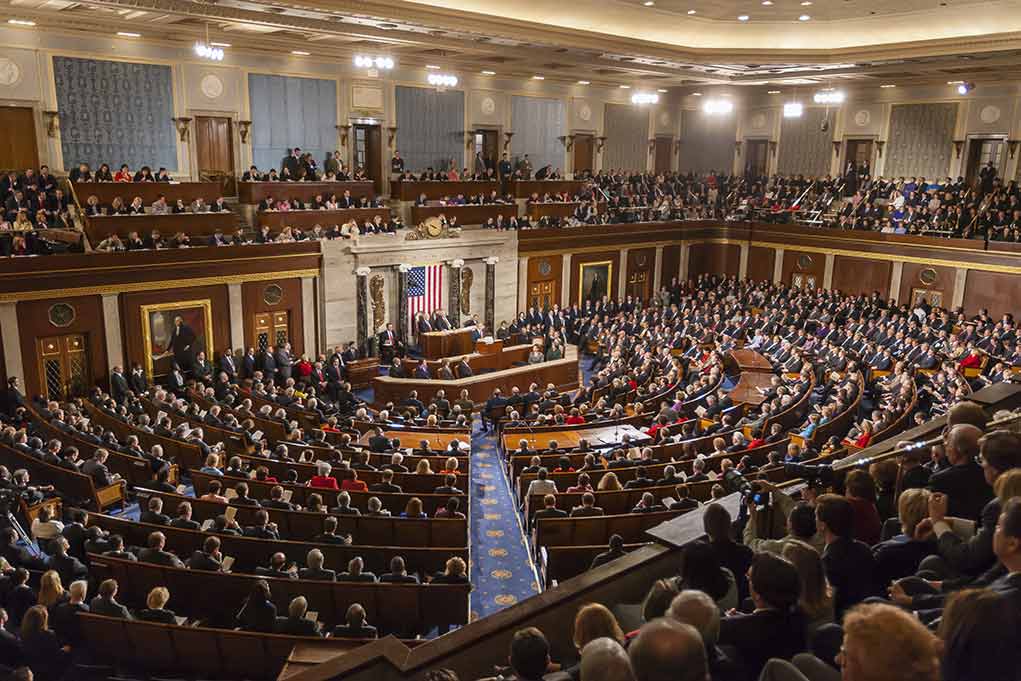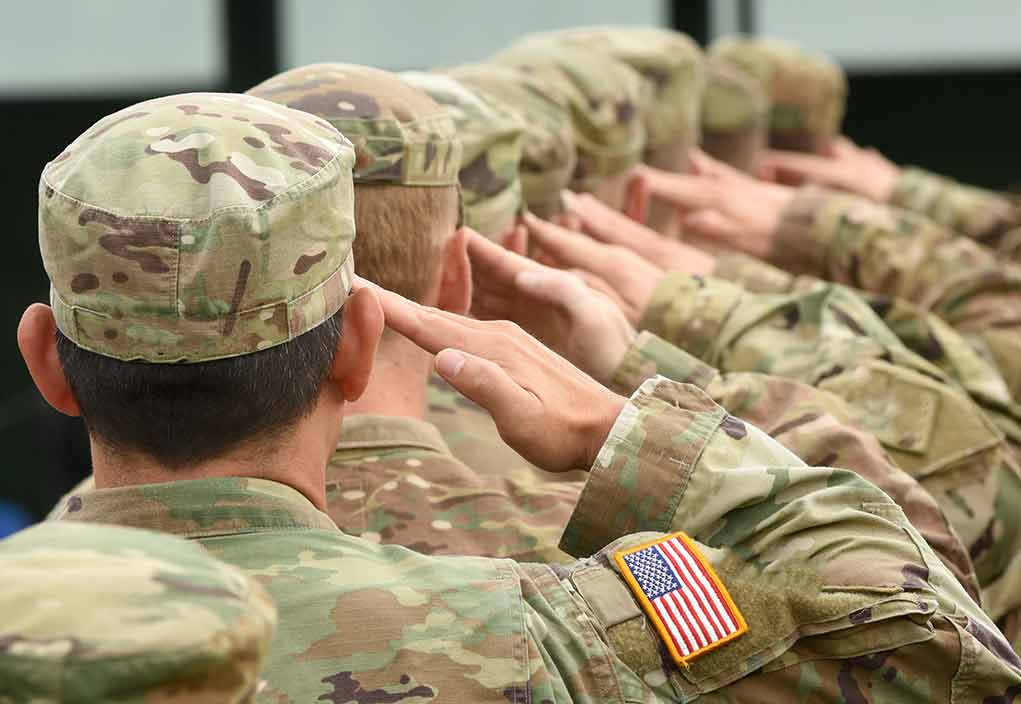JD Vance Unleashes Fiery Criticism on Biden as Trump Prepares Return
Vice President-elect JD Vance unleashes scathing critique of Biden administration, setting the stage for Trump’s return to power. At a Glance JD Vance labels Biden administration an “absolute dumpster fire” on Fox News Trump administration’s pardon strategy for January 6 participants excludes violent offenders Vance highlights issues like high living costs, homelessness, and $36 trillion […]
National Security Alert: Critical Cyber Breach by Chinese Hackers
Chinese hackers have infiltrated a critical U.S. agency responsible for safeguarding national security interests, raising alarms about cybersecurity vulnerabilities and potential threats to sensitive information. At a Glance Chinese hackers breached the Committee on Foreign Investment in the U.S. (CFIUS), a key national security agency The breach was part of a larger incursion into the […]
Jack Smith Steps Down: What’s Next?
Special Counsel Jack Smith resigns from DOJ. At a Glance Jack Smith resigned as Special Counsel on January 10, 2025, after prosecuting two criminal investigations involving President-elect Donald Trump Smith submitted his final confidential report on January 7, 2025 Judge Cannon blocked the report’s release, citing Smith’s alleged illegal appointment as special counsel The DOJ […]
Tension Rises as Trump Targets Newsom’s Wildfire Strategy in California
Donald Trump blasts California Governor Gavin Newsom over wildfire response, citing water mismanagement and environmental policies. At a Glance Trump criticized Newsom for mismanaging California’s water resources amid wildfire crises. Governor Newsom’s office dismissed claims of water shortages as false. Trump called for Newsom’s resignation, blaming his administration for the wildfires. Gavin Newsom declared a […]
Exploring Global Repercussions of Trump’s Greenland Acquisition Interest
Donald Trump reignites interest in purchasing Greenland, citing national security concerns and strategic importance. At a Glance Trump renews interest in acquiring Greenland, emphasizing its strategic value for U.S. national security Greenland’s rich natural resources and strategic location fuel geopolitical interest Both Greenland and Denmark firmly reject the idea of selling the autonomous territory Climate […]
Gallup Poll Exposes Surprising Public Sentiment on Biden’s Term
A recent Gallup poll reveals that President Biden’s legacy may be tarnished, with a majority of Americans rating his presidency negatively. At a Glance 54% of Americans believe Biden will be remembered as a “below average” or “poor” president Biden’s net positivity rating is -35, second only to Richard Nixon’s -42 Only 19% of respondents […]
The Strategy Behind Trump’s Budget Focus on Key Issues
Trump’s ambitious plan to revolutionize border security, energy production, and tax policy faces hurdles as Republicans debate the best strategy for swift implementation. At a Glance Trump and House Speaker Mike Johnson favor a single comprehensive bill for border security, energy, and tax cuts The strategy aims to use budget reconciliation to bypass Senate’s 60-vote […]
Meta Ends Fact-Checking in a Push Towards Free Speech
Meta announces the end of its fact-checking program, signaling a major shift towards free speech on its platforms. At a Glance Meta is ending its fact-checking program and scaling back content moderation A Community Notes system will replace fact-checkers on Facebook and Instagram Speech restrictions on topics like immigration and gender identity will be reduced […]
Trudeau’s Resignation: What Does It Mean for Canada’s Election Future?
Canadian Prime Minister Justin Trudeau announces his resignation, throwing the country’s political landscape into turmoil ahead of upcoming elections. At a Glance Trudeau resigns as Liberal Party leader and Canada’s Prime Minister Resignation follows internal party pressure and declining popularity Parliament prorogued until March 24, new leader selection process unclear Conservative Party leading in polls, […]
Controversy Erupts Over Allstate CEO’s Response to New Orleans Crisis
Allstate CEO Tom Wilson’s response to a terror attack in New Orleans sparks controversy and calls for boycott. At a Glance A terror attack in New Orleans on New Year’s Day resulted in over a dozen deaths and over 30 injuries Allstate CEO Tom Wilson faced backlash for his comments before the Sugar Bowl Conservative […]
Judge Weighs Unconditional Discharge in Trump Case Amid Immunity Controversy
Judge Juan Merchan signals no jail time for Trump in hush money case, opting for ‘unconditional discharge’ amid presidential immunity challenges. At a Glance Trump convicted on 34 felony counts for falsifying business records related to hush money payments Judge Merchan leans towards ‘unconditional discharge,’ avoiding jail time, fines, or probation Sentencing scheduled for January […]
Cognitive Health in Leadership: Debating Transparency and Accountability in Government
Concerns surrounding President Biden’s cognitive capacities bring urgency to discussions of governmental transparency and truthfulness. At a Glance Allegations against the Biden administration suggest dishonesty regarding the President’s health. Proposals call for legal measures against lying about the president’s cognitive state. Reports indicate schedule management intended to hide cognitive decline. Media defended Biden, dismissing mental […]
Trump Responds Strongly to Latest Legal Challenges and Criticisms
Former President Donald Trump faces another legal setback as appeals court upholds $5 million verdict in E. Jean Carroll case. At a Glance Federal appeals court upholds $5 million civil judgment against Trump in E. Jean Carroll case Trump found liable for sexually abusing Carroll in the 1990s and defaming her after she went public […]
FTC Imposes New Rule: Hidden Costs Must Be Revealed for Travelers
FTC’s new directive demands transparency in hotel and ticketing fees, challenging businesses to disclose all costs upfront. But will this change the landscape for consumers? At a Glance FTC mandates upfront disclosure of all mandatory fees for hotels, rentals, and tickets. The Junk Fees Rule aims to eliminate deceptive pricing practices. Businesses must include fees […]
Rep. Spartz Confronts Speaker Johnson Over Conservative Principles in GOP Strife
House Speaker Mike Johnson faces a challenge from within his own party as Rep. Victoria Spartz demands assurances of his commitment to conservative values. At a Glance Rep. Victoria Spartz seeks assurances from Speaker Johnson about upholding conservative principles President-elect Trump endorses Johnson, praising him as a “good, hard working, religious man” Some GOP members, […]
Remembering Jimmy Carter: Legacy of the 39th President and Humanitarian Leader
Jimmy Carter, the 39th President of the United States, has passed away at the age of 100, marking the end of an era for the oldest-serving former president and celebrated humanitarian leader. At a Glance Jimmy Carter has died at 100 in Plains, Georgia. Known for post-presidential humanitarian work. Longest-lived American president. Survived by numerous […]
CDC Uncovers Genetic Changes in Bird Flu After U.S. Human Case
The CDC has identified troubling mutations in the bird flu virus after the first severe U.S. case in a Louisiana patient, sparking concern but officials hint at containment. At a Glance The CDC identified mutations in the bird flu case, not present in the patient’s backyard flock. Mutations in the hemagglutinin gene affect viral attachment […]
Finland Intercepts Oil Tanker in Shadow Fleet Mystery Involving Russia
Finland seizes oil tanker suspected of sabotaging undersea power cable, raising concerns about Russia’s shadow fleet and maritime security. At a Glance Finnish authorities detained the oil tanker Eagle S, suspected of involvement in cutting the Estlink-2 undersea power cable The vessel is believed to be part of Russia’s “shadow fleet,” used to evade Western […]
Elon Musk Challenges Wikipedia’s DEI Policies and Neutrality Standards
Elon Musk sparks controversy by urging followers not to donate to “Wokepedia,” citing concerns over Wikipedia’s budget allocation for diversity initiatives. At a Glance Elon Musk calls for a halt in donations to Wikipedia, labeling it “Wokepedia” Musk criticizes Wikipedia’s $50 million budget allocation for diversity, equity, and inclusion (DEI) initiatives Wikipedia faces accusations of […]
How Political Discrimination is Shaping the Future of Financial Services
Banks are closing accounts of conservative figures, sparking accusations of political discrimination and calls for legislative action. At a Glance Debanking, the denial of financial services based on political views, is on the rise High-profile conservatives like Melania Trump and Dinesh D’Souza report account closures Tech leaders Elon Musk and Marc Andreessen advocate for laws […]
Cryptocurrency’s Pop Culture Infiltration: Discover 2024’s Defining Events
Cryptocurrencies took center stage in 2024, reshaping financial landscapes and leaving an indelible mark on American culture. At a Glance The SEC approved 12 Spot Bitcoin ETFs, leading to Bitcoin reaching an all-time high of over $70,000 Donald Trump’s election victory sparked a crypto surge, with Bitcoin hitting $100,000 Cryptocurrencies gained prominence in mainstream entertainment […]
Ronald D. Johnson’s Ambassador Nomination Sparks Controversy and Unease
President-elect Donald Trump’s nomination of Ronald D. Johnson as U.S. Ambassador to Mexico raises concerns about potential military intervention and diplomatic tensions. At a Glance Trump nominates Ronald D. Johnson, former U.S. Ambassador to El Salvador, as Ambassador to Mexico Johnson’s military background sparks fears of aggressive intervention in Mexico Trump proposes military action against […]
Hamza bin Laden and the New Phase of the War on Terror
Introduction – Unveiling the Hidden Threat: Hamza bin Laden’s Islamic Army In a chilling revelation, the YouTube video “Why Doesn’t the CIA Believe Hamza bin Laden is Still Alive?” by Shawn Ryan with former CIA targeter and intelligence analyst Sarah Adams, exposes the alarming reality of a new terrorist coalition. This review delves into the […]
Pentagon’s Surprising Announcement on Troop Numbers in Syria Unveiled
The Pentagon reveals a shocking increase in US troop levels in Syria, doubling the previously reported numbers to combat ISIS. At a Glance US troop levels in Syria now around 2,000, nearly double the previous 900 Increase aimed at maintaining pressure on ISIS factions Troop surge described as temporary, unrelated to Assad’s fall Pentagon cites […]
GOP Senators Push to Halt US-China Tech Deal Citing Security Risks
Republican senators urge Biden to end science agreement with China, citing national security risks. At a Glance Republican senators demand termination of U.S.-China science and technology agreement Agreement recently extended for five years, raising concerns about timing Senators argue cooperation with China risks American research being co-opted State Department claims new agreement has narrower scope […]
AI Ethics Shaken: The Fallout from Suchir Balaji’s Tragic Death
Former OpenAI researcher and whistleblower Suchir Balaji’s death sparks debate on AI ethics and corporate responsibility. At a Glance Suchir Balaji, 26, was found dead in his San Francisco apartment, with authorities ruling it a suicide. Balaji had publicly criticized OpenAI’s data-gathering practices, alleging copyright violations in developing ChatGPT. His death has intensified discussions on […]
New Fed Approach to Interest Rates in Response to Inflation Worries
The Federal Reserve signals a more cautious approach to interest rate cuts as inflation remains stubborn and economic growth surprises. At a Glance Fed expected to make fewer cuts anticipated in 2025 Inflation persists above 2% target, complicating policy decisions Stronger-than-expected economic growth adds complexity to rate strategy Trump administration could introduce policies affecting inflation […]
Murder Charges Unveil Dark Secrets in Family and Business Connections
A shocking case unfolds in western New York as Richard Fluegel Jr. faces murder charges for allegedly killing his father and turning himself in with the body. At a Glance Richard Fluegel Jr. charged with second-degree murder of his father, Richard Fluegel Sr. Fluegel Jr. turned himself in at the Livingston County Sheriff’s Office with […]
Unexpected Arctic Alliances: Russia and China’s Strategic Moves Unveiled
A growing Russia-China military alliance in the Arctic region raises significant questions about implications for U.S. national security and NATO. At a Glance Increased military collaboration between Russia and China in the Arctic. U.S. and NATO regard the Arctic as a strategic battleground. Russia’s Arctic military expansion challenges U.S. interests. NATO’s potential role in Arctic […]
Challenges Loom for Pete Hegseth’s Defense Secretary Nomination in Congress
Pete Hegseth’s nomination for Defense Secretary faces hurdles as he seeks to secure crucial GOP votes amid allegations and Democratic opposition. At a Glance Hegseth needs at least 50 GOP votes for confirmation, with no Democratic support expected Key Republican senators, including Collins and Murkowski, remain undecided Allegations of misconduct and concerns about experience cloud […]









